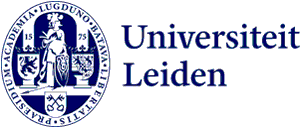Leiden Law Cast #3: Damaged trust in claims policy with Dr G. Kuipers
Leiden Law Cast is a podcast made by Leiden Law School, Leiden University, for everyone who wants to learn more about current legal issues.

We present information in a more ‘digestible’ form, shining a light on all the latest issues and science news. Two students from our faculty, Irem Çakir and Hamza Duprée, present the podcast. In each episode they ask a member of the academic staff at Leiden Law School about a topical legal issue.
Dr Georgina Kuipers was the guest on the third episode of Leiden Law Cast. Georgina didn’t start off with a background in law, instead studying Liberal Arts and Sciences: Global Challenges at Leiden University. As she was one of the first group of students to do that degree, she was able to contribute a lot to the brand new programme at The Hague Campus at the time. After completing her bachelor’s degree, she opted for a mixture of Political Science and Public Administration for her master’s degree, while following the Leiden Leadership Programme at the Old Observatory building. For her PhD thesis entitled Beschadigd vertrouwen (Damaged trust) she made the switch to Leiden Law School and the Department of Constitutional and Administrative Law. In her thesis, written very recently under the supervision of Professor Willemien den Ouden, Georgina combined social-psychological and legal research to answer the question how can government create trust-building compensation policy if it has facilitated damage. This is damage suffered by a group of citizens by permitting (via e.g. a licence or dispensation) activities by a private party.

Following her interdisciplinary research, Georgina arrived at six principles that influence the trust of citizens: recognition, participation, comprehensibility, openness, independence and timeliness. These six principles must always be combined to create trust-building policy, but they can also sometimes clash. This is particularly true of the tension that can exist between the urgency of a settlement and the other five principles. For example, with the advances received by businesses at the start of the lockdown during the pandemic. These had to be provided quickly and so less meticulously – otherwise a large number of businesses would soon have gone bust.
Very complex
When asked about the situation in Groningen, Georgina says that compensation policy is very complex. The Nederlandse Aardolie Maatschappij (NAM) has been extracting gas in Groningen since the 1960s. This has caused all sorts of damage, such as cracks in houses, a decline in the value of property, and fear among citizens. In her PhD thesis, Georgina pays attention to compensation policy in relation to Groningen. She argues that policy on providing compensation to citizens should be simplified.
One explanation for the system being so complex, is that the damage is facilitated by the government, but not caused by it. To begin with, it seemed that the private actor NAM could be held responsible via liability law. However, as the number of claims grew it became too much for the NAM and the focus shifted to the Dutch State. In Georgina’s view, this so-called ‘administrative spaghetti’ was not caused by unwillingness, but rather an unfortunate combination of circumstances in which administrators and private organisations also found themselves. Georgina suggests that having one central point of contact where citizens can turn to with questions is very important. In addition, she recommends that the government identifies the different possible types of damage as early as possible to be able to set up a clear policy in the meantime.
Georgina also shared her thoughts on damage caused by the lockdowns. Experts warn that pandemics occur once a century. However, Georgina does not believe that the Dutch people would agree with the notion that they could have foreseen the pandemic. Politicians chose to compensate this damage through a system of advance payments. Further down the line, we will once again face the political choice of whether to reclaim the amount originally agreed, or to (partly) cancel it. When it comes to building confidence in government, what is needed is not necessarily leaving aggrieved businesses with a large bag of money. What is needed, on the basis of the six principles, is fair treatment that leads to a sense of procedural justice.
‘Man suffers most from the suffering he fears.’
The final topic on the table was the student loan system. Students who started their degree in the period 2015 to 2023 were unable to use a student grant system, but had to use this loan system instead. Georgina is critical of the lack of recognition during the introduction of the loan system: instead of being open about cuts, it was claimed that the measure was intended to improve education.
As is customary on Leiden Law Cast, Georgina ends with her ‘wise words’ by sharing the final sentence of her PhD thesis: ‘Man suffers most from the suffering he fears’. This saying does not just apply to injured parties, but also to the young Georgina who experienced the fortnight before a dentist’s appointment as being far worse than the appointment itself.
Listen the episode here (in Dutch):
Or follow Leiden Law Cast here:
More Leiden Law Cast episodes:
- Leiden Law Cast #1: Child benefits scandal & compassion with Professor A.G. Castermans
- Leiden Law Cast #2: The role of the criminal defence lawyer with Dr M. Lochs
More information about Leiden Law Cast here.
